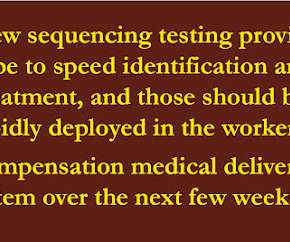How Clinical Informatics Can Uncover Major Saving Opportunities in Healthcare Plans
Griffin Benefits
SEPTEMBER 5, 2023
Data analytics is the first step in answering that question, directing employers toward what medical situations can sink a healthcare plan. But to fully understand any healthcare plan issue — and know how to fix it — requires clinical informatics, where experts examine data from a medical perspective. WANT TO LEARN MORE?












Let's personalize your content